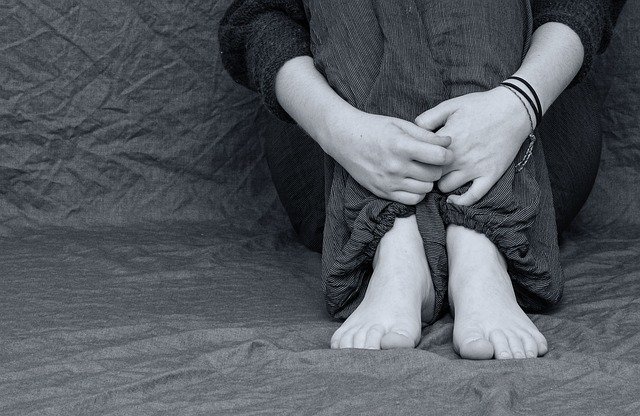
Overcoming an addiction and making a long term recovery is a challenge in itself.
As individuals in recovery are faced with triggers and surrounded by temptation, the risk of relapse within the first year of recovery is a prevalent problem.
While it is not often discussed, isolation poses as an additional struggle for those in recovery.
In order to address the additional struggle that isolation places on those in recovery, at Action Rehab, we have delved into the way in which isolation contributes to addictions, why isolation poses as a risk for those in recovery and how isolation in recovery can be overcome.
How Does Isolation Contribute to Addictions?
As an addiction arises, individuals struggling will be left feeling somewhat isolated from those around them.
Sadly, feeling isolated from others will see individuals seek comfort from drugs or alcohol in a bid to abolish how they feel. In turn, this has the potential to induce a wealth of psychological effects.
The psychological effects of addictions will leave many feeling lonely. At the same time, the stigmas surrounding addictions will prevent those struggling from attempting to discuss their thoughts and feelings with others.
Isolation – The Additional Struggle For Those In Recovery
Although many go on to make a full recovery having sought treatment from a drug and alcohol rehab, isolation poses as an additional struggle for those in recovery.
While many individuals in recovery will find themselves surrounded by unconditional support from family members, friends, colleagues and employers, addiction recovery can be a somewhat lonely and isolating place.
When considering isolation, people often believe that isolation is purely physical. After all, isolation is defined as being separated from something or someone. However, isolation can also see an individual in recovery become emotionally isolated from others.
Although individuals in recovery may be surrounded by their loved ones, in some instances, they are likely to feel somewhat hesitant to discuss their thoughts and feelings with others. They may also feel as though they simply cannot talk to their loved ones as they will not understand what they are going through.
As a result, emotional support is not obtained, leaving an individual to shut others out and once again suffer alone in silence. Not only does this contribute to the risk of becoming subject to a mental health disorder, but it could see those in recovery succumb to their addictions and sadly relapse.
Furthermore, it should be noted that not everyone in recovery will be provided with unconditional support. Sadly, addictions are known to destroy relationships. Although treatment will offer support and guidance on restoring the relationships that have been affected by an addiction, in some cases, not every relationship can be salvaged.
Unfortunately, this poses as a risk for those in recovery to experience isolation. Without the support of their friends, family and loved ones, individuals in recovery will believe that they have no one to turn to or talk to in their time of need.
Regrettably, this can cause pessimistic thoughts and feelings to arise, which, in turn, has the potential to leave those in recovery seeking comfort elsewhere. In unfortunate circumstances, this can also heighten the risk of relapse.
Overcoming Loneliness and Isolation In Recovery
If you find yourself feeling somewhat lonely and isolated as you progress through your recovery, you may find it challenging to reach out for support and help. You may even believe that there is no way to overcome loneliness and isolation in recovery.
However, there are various ways to overcome loneliness and isolation in recovery. Below, we have outlined just a few of the things you could do to alleviate yourself of isolation and mitigate the risk of relapse.
1. Confide In Your Loved Ones
Although we understand that you may feel as though you cannot confide in your loved ones as they will not be able to resonate with how you feel, sharing your thoughts and feelings will help you to alleviate the pessimistic thoughts and feelings that you are experiencing.
In doing so, not only will you find that you do not feel as isolated as you once did, but you will feel somewhat relieved of the thoughts that you had encountered. In turn, you will be able to mitigate the risk of relapsing.
2.Attend A Support Group
Attending regular support groups are extremely beneficial throughout your recovery. Support groups will provide you with the opportunity to share how you feel with other individuals that are in recovery and obtain support and guidance from recovery specialists.
As touched on above, isolation is often felt when those in recovery reject or fail to obtain emotional support as they believe that others do not understand what they are going through.
However, approaching a support group will see you surrounded by others that are in recovery, many of whom will know precisely how you feel.
If you do not feel comfortable in sharing your story and thoughts with others, attending a support group will provide you with the ability to listen to others. In turn, you will come to realise that other people are experiencing similar thoughts and feelings to you, and also feeling somewhat isolated.
3.Talk To Action Rehab
Isolation poses as an additional struggle for those in recovery. Paired with triggers and mental health disorders, the risk of relapse is real. However, with our support, we can help mitigate the isolation you feel, and offer sound advice and coping strategies to help you through this somewhat testing time.
If you are experiencing bouts of isolation and feel as though you have nowhere to turn, please pick up the phone and give us a call.
Contact Action Rehab Today
As discussed above, isolation is a widespread problem that impacts many individuals in recovery. However, there are various ways to overcome isolation.
If you have attempted to take advantage of support groups and have tried to confide in your loved ones, but still feel somewhat isolated, please do not hesitate to reach out to us.
We can offer you support and guidance over the phone. We can also refer you to and recommend suitable recovery groups and tools that can support you in overcoming the isolation that you have encountered.
Posted on Friday, December 11th, 2020 at 10:37 am in Latest News.






 Call Us
Call Us Contact Us
Contact Us